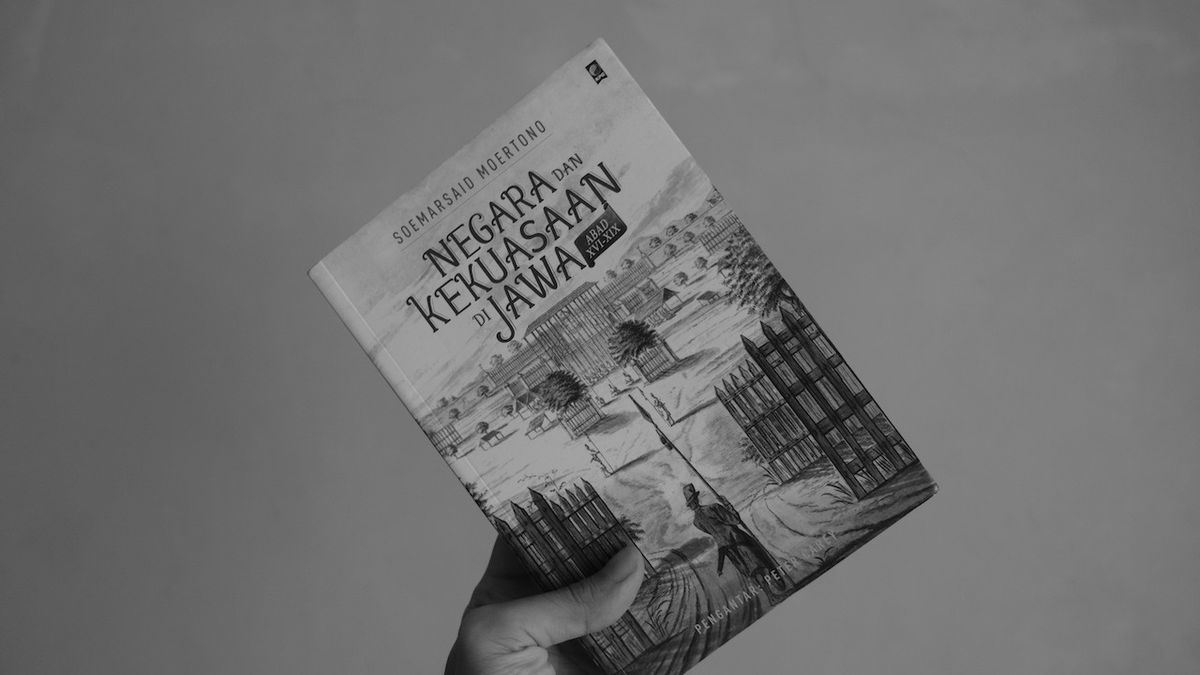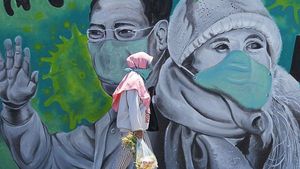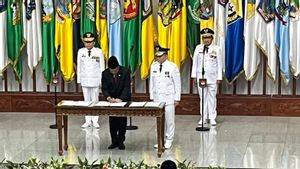JAKARTA - In school, traces of Javanese kings, especially the Mataram kingdom of the 17th to 19th centuries, were only taught at an introductory level. In fact, if one examines it, one will find many facts related to the kingdom that once formed the Dutch trading partnership, the VOC almost giving up.
Therefore, anyone who wants to explore the Mataram kingdom will undoubtedly get information that is not only related to the great hegemony of the Mataram kingdom. Luckily, the complete description of the Mataram kingdom has been thoroughly reviewed in the book State and Power in Java in the XVI-XIX Century (1985).
In the book, the writer Soemarsaid Moertono or who is often called Mas Moer, describes in detail the power of kings and culture in Java. Uniquely, Mas Moer also made the life of the Mataram Kingdom as the main guide which initially took the form of a monumental thesis.
It is said to be monumental, because through this thesis, world historians like Ben Anderson and Peter Carey were so inspired to explore Javanese culture, even when their thesis was recorded which inspired more and more people. The writer Goenawan Mohamad is one of them
In one of his writings, Goenawan once revealed that the kings of Java were the expression of a dream, especially the ideal of stability as expressed by Mas Moer. He gave us an example of the meaning of the name of the king of Mataram. Amangkurat and Mangkubumi mean "to take the earth". Hamengku Buwono means "holding the continent". Paku Buwono: "nails" or "pegs" that make the continent immobile, trace it without being shaken.
The rest, in this book the readers will get an overview of the Javanese kingdom. In particular, the relationship between the king and the people, ideally the king of Java, to the lineage of Javanese kings, and the people's taxes collected by the kingdom.
Everything is nothing but to provide a new understanding. an understanding related to history is not only about polishing the greatness of the past, but to find years of mistakes in the past so that they do not happen again.
King and People RelationsUnderstanding the concept of the relationship between the king and the people in the kingdom in Java is easiest to learn from the kawula-gusti (servant and master) relationship. Through these words it can describe that the relationship between gusti (master) and the people (servant) is a wide gap.
Even if there is a bond which can unite the two, they are not allowed to violate the official dividing line which is the social hierarchy. "... which is based on birth, or rank and is clearly seen in the many regulations that determine the procedure for wearing clothes, the use of language, the use of colors, and the way of respect," wrote page 23.
Then, only destiny and lineage determine the position of a person placed in the position of kawula or gusti. On that basis, the kawula position is always placed lower in the eye of the gusti.
Ideally the King of JavaIdeally, the king for the Javanese cannot be separated from the belief that occupies the position of power as the main intermediary that connects the human microcosm and the divine macrocosm. In that sense, if anyone dared to oppose the king, bad luck would befall them. Moreover, kings were often referred to as warana - verdict - god.
Where the King is understood as the sole intermediary between humans and God. It was this manifestation that made every decision of the king unchallenged, because each of his decisions was alleged to be God's will, and his actions were God's administration.
"So, the king is placed in the reins of society, far beyond the reach of ordinary people. This corner of the field at one time gave rise to the idea of a king as an inactive political power, as a panandita queen (priestly king) from whom he exuded generous influences, pervading his entire kingdom, ”says Page 52.
The lineage of the King of JavaThe best way to trace the signs of a Javanese king comes from none other than his genealogy. Through one's genealogy, Javanese people can find out the greatest strength of their kings. The more great figures, real or legendary, the greater the dignity of the king.
"The Javanese mind tries to unite two different cultures from Hinduism and Islam to establish the desired continuity; therefore the kings of Mataram were given a double lineage, the history of pangiwa (left) and the history of panengen (history of the right), "appears on page 90.
People's taxJust as a country that is subsidized by taxes, the kingdom in Java is the same. In fact, the old tax collections never stopped bothering the minds of the people. Therefore, the picture of farmers paying taxes late is commonplace. Not to mention that the tax collected is not small.
"According to the Rothenbuhler report there are 25 types of taxes. A note from Semarang, August 21, 1830, mentions an impressive number of 37 kinds, ”writes Page 185
These taxes range from land products tax to regular fees. From fees to cover the cost of sending envoys and welcoming the great guests to donations made by irrigation officers in the village. To the extent that, regarding mandatory donations in the form of ducks or chickens for the king's kitchen, marriage taxes, divorce, and religious contributions are also withdrawn.
Presumably, those are some things that can be learned from this book. However, there are many other things that have not been discussed in this review, such as the ratification of the position of king, the technical organization of government, and so on.
To conclude, let us attach again to the opinion of the British historian Peter Carey about Mas Moer. He himself argued: "Mas Moer's recipe as a historian is nervous, tireless enthusiasm to read thousands of pages of original Javanese texts and books in Javanese language."
Detail:
Book Title: State and Power in Java in the XVI-XIX Century
Author: Soemarsaid Moertono
First Published: 1985 (KPG Printing: 2017)
Publisher: KPG (Popular Gramedia Library)
Number of Pages: 249
The English, Chinese, Japanese, Arabic, and French versions are automatically generated by the AI. So there may still be inaccuracies in translating, please always see Indonesian as our main language. (system supported by DigitalSiber.id)













